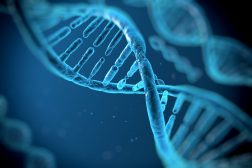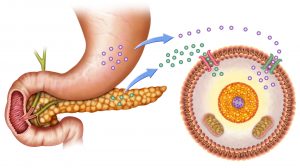Definition
noun
(1) The circulating fluid (plasma) and suspended formed elements, such as red blood cells, white blood cells and platelets in the vascular system of humans and other vertebrates.
(2) A functionally similar fluid flowing in the bodies of many animals (e.g. hemolymph in insects).
Supplement
Blood is the circulating fluid in the body of eukaryotic animals. In humans and other vertebrates, the blood is pumped through the body by the heart, and appears bright-red when hemoglobin is oxygenated. Its major functions include the following:
- Transport of nutrients (e.g. glucose, amino acids, and fatty acids) throughout the body
- Carries and delivers oxygen throughout the body
- Transports carbon dioxide and metabolic byproducts for excretion
- Immune defense against pathogenic and harmful antigens
- Coagulation and blood clot formation
- Regulation of body pH and temperature
- Transport of hormones and other chemical signaling molecules
Mammalian blood is comprised typically of 55% plasma and 45% cellular elements (blood cells and platelets). The plasma contains water, ions, plasma proteins, nutrients, respiratory gases, hormones, and metabolic byproducts. The cellular elements are comprised of red blood cells, leukocytes, and platelets. In blood physiology, the circulating blood is a non-Newtonian fluid. Blood viscosity refers to the internal resistance of the blood to shear forces, i.e. the resistance to blood flow in small blood vessels. To further understand non-Newtonian fluids, read this excellent article from Science Learning Hub.
Word origin: Old English blōd, Proto-Germanic *blodam, of uncertain origin
See also:
- Hemolymph
Related term(s):
- Full blood count
- Blood agar
- Blood Pressure








